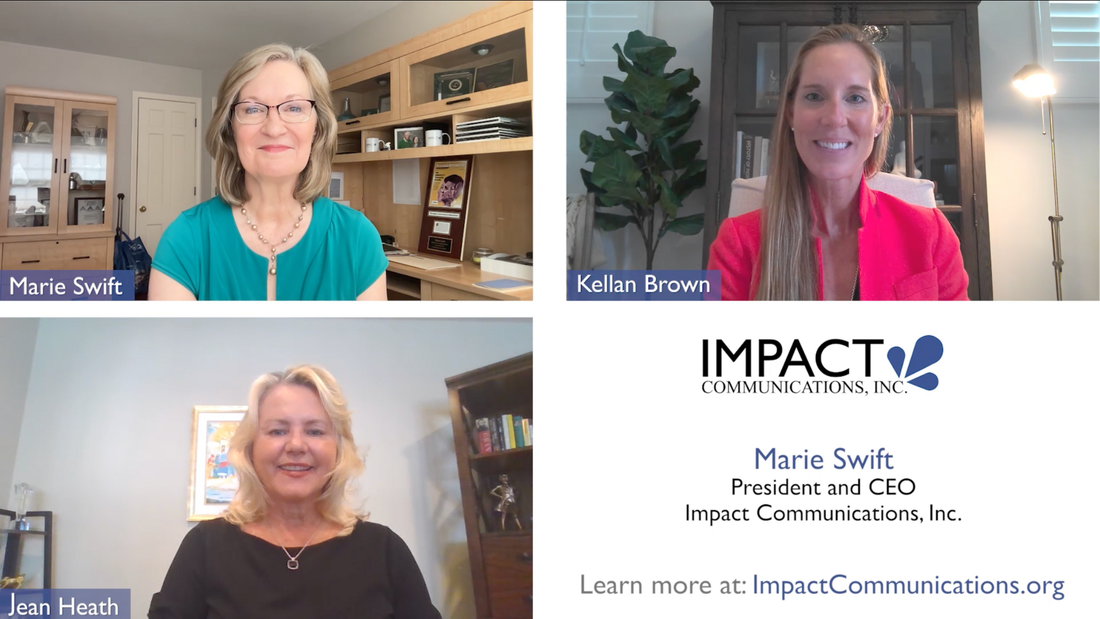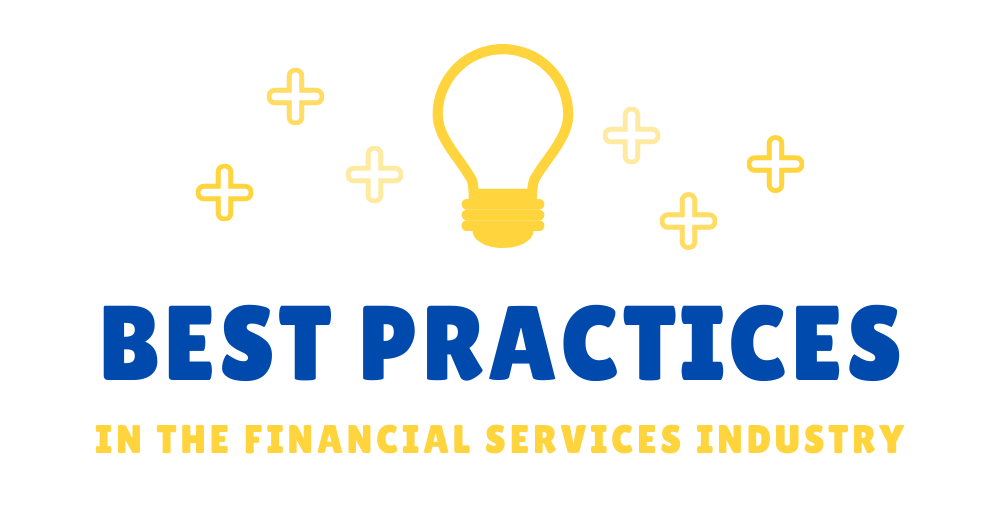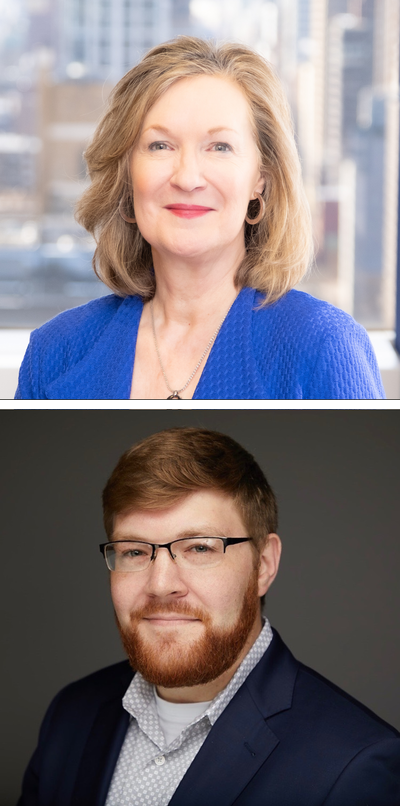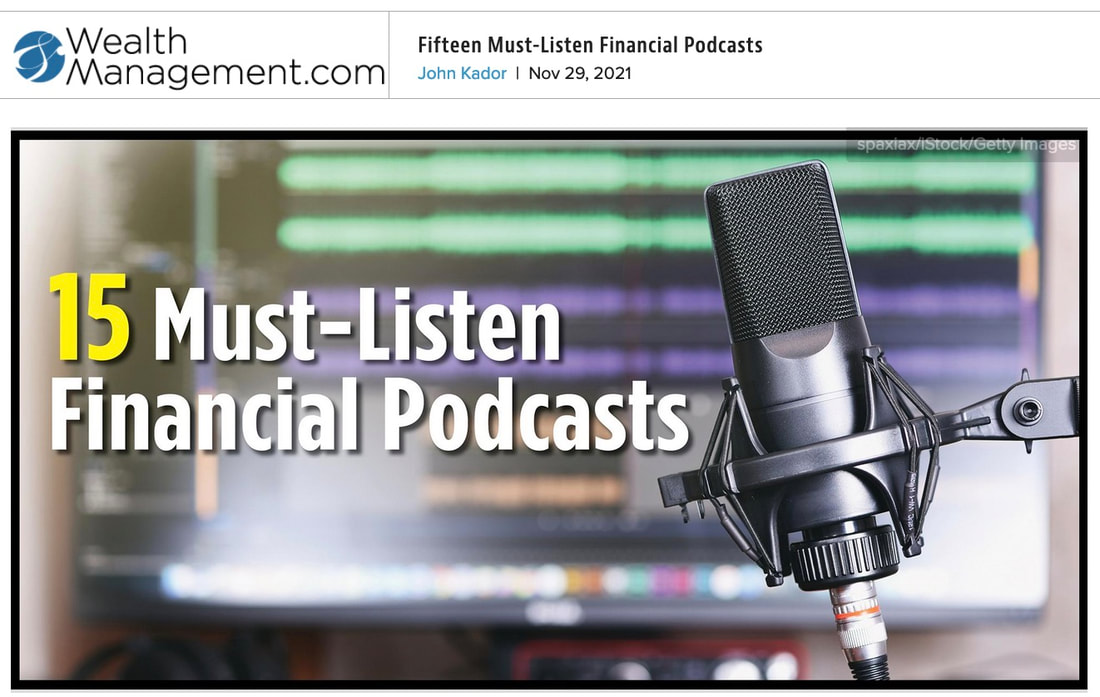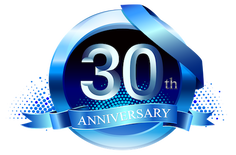Swift Chat with Kellan Brown and Jean Heath: The Value of a Structured Mentorship Program11/15/2022
In this In this Swift Chat, Marie Swift of Impact Communications, Inc. speaks with Kellan Brown, Vice President of Business Development Strategic Partnerships in the Retirement Strategies Division at FAR, Finance of America Reverse, and Jean Heath, CIMA®, head of Asset Manager Network at Envestnet.
The trio discuss the importance of structured mentorship programs, how their respective companies implement their own mentorship programs, and how those mentorship programs help in building a strong workplace culture. The three women also share their own experiences in mentorship programs both as a mentee when starting their careers and as mentors as they've established themselves in their careers.
Learn more about Kellan Brown and Finance of America Reverse at: www.FAR.com
Learn more about Jean Heath and Envestnet at: www.Envestnet.com To hear Kellan say her company is saving over $3 million because they formalized the mentorship program, that's important to the executives within a company that they see why they need a mentorship program, not just to retain talent and make people happier at the job. It should be part of the culture. It's not just a program. It's something that's ingrained in the culture. And now there's proven data that shows it actually makes your company more financially sound by actually putting it in place." Transcript of Conversation
Marie Swift: Well, hello and welcome back to another great Swift Chat, I'm joined today by Kellan Brown. Kellan is the Vice President of Business Development Strategic Partnerships in the Retirement Strategies Division at FAR, Finance of America Reverse. Also, today we have Jean Heath. Jean is the head of Asset Manager Network at Envestnet, and she also holds her CIMA designation.
Well, we had the opportunity to get to know each other a little bit better and to really dig into this topic on structured mentorship and how investing and professional coaching generates higher growth potential, when we were together in Denver at the InvestmentNews Women Adviser Summit. So, I thought it would be a great thing for us to bring some of that great content, those great ideas to life for our audience here in the Swift Chat community. I thought we'd start by talking about the impact of mentoring, the benefits of mentoring, particularly for our industry and women. To get us going, I thought I'd share this statistic: 100% of US Fortune 500 companies with female CEOs have structured mentoring programs. Now we're emphasizing structured, and this statistic exceeds the average of 84% for all Fortune 500 companies. And what's even more enticing is that US Fortune 500 companies with female CEOs had a year over year profit change in 2020 that was actually 73% better than the average. So, Kellan, what would you like to add to that? Why is mentoring important? Kellan Brown: Yeah, thank you Marie. Those are some phenomenal statistics that we stand behind. I think the one to touch on first is that all of the women that are in the C-suite that lead those Fortune 100 companies all have mentorship programs. I think the reason why that's the case is because they've experienced what mentorship has done for them. Especially in the financial service space, we as females have leaned heavily on each other to actually grow and learn how to be strong leaders. As we all know, there is a difference between the male and female leads when we talk to the executive level, and it was really important, I think, for all of those leaders in those CEO spaces to understand: here's my experience, this is how I got here, and I want to make sure I'm paying that forward to the rest of my team. Swift: So, Jean, what would you add? How do you think about that at Envestnet? Jean Heath: I think what I'm seeing now for a critical part of mentoring, is really women within five to eight years of their career, where we have done a much better job as an industry of bringing women into the business and creating opportunities. But once you're there, are we creating the right environment that is allowing for women to succeed? I think the best way to do that is to have a structured mentorship program that encourages that environment, that allows women to grow and allows for them to have their eyes opened up to other career paths within the firm. So, one, they don't start to look elsewhere. And two, when you start to make those decisions around having a family, and that's generally around the time you would be doing it; as you know, you're within 10 years of starting your career. We want to be able to have an environment that allows for women and men to be comfortable, to be able to continue a career in the workplace by still having to manage the demands of a family. We always talk about work-life balance. It's really life. We work and we have families, and how do we make sure as an industry we're creating the right environment to be successful and also for firms to continue to retain the best talent. Swift: You know, here's another great stat. According to CNBC, 90% of workers who have a mentor report being happy with their job, and I think that ties in nicely to what you're saying, Jean. Heath: I completely agree. Swift: Do you have a story that you'd like to share? Someone you mentored, or someone who mentored you that made a difference in your career? Heath: Yes. My biggest mentor was actually a man, which is always interesting as I'm such a proponent of women. But men and women work together and I think all great mentors come, whether it's women or men, and he was someone that was just very family focused, but he was also in sales, so he was really results driven. So, he wasn't about needing me to sit at my desk from eight in the morning to six at night to prove I was getting my work done. He understood the demands of juggling working with the family, and as long as the work got done, he was happy. He also had two daughters. I think having younger daughters, as he started to see them grow, opened his eyes up to wanting to make sure they had the right opportunities in this industry. And the way to do that was to start paying it forward now, at that point in time. Swift: Kellan, I imagine you have a good story to add. Brown: Yeah, and I would love to respond to Jean's comment. It's so interesting to hear how we've all been mentees, but also fallen into mentors because of that impact. Right before we got started, I was telling Jean I was running off of a coaching call, my personal coach, and she said, “well, are you being coached or are you coaching?” Because we both do a lot of coaching within our organizations. I said that I was being coached. Jean is also about to participate in a program where she's going to have another opportunity with a different personal coach. It's so nice to hear that because I always say to mentors, if you're going to be a mentor, make sure you also have someone that's mentoring you. That's what helps us grow in our space. I've had many mentors that have made an impact, but the one that stands out is Brett Musgrove, also a male. He gave me the tools that he didn't have for himself and people even outside of just him to become a better leader because he wanted to see the organization grow as a whole. So, he invested so much in his leadership group. If he didn't have the ability to do it, he found the resources to help us become better. His goal always was, I want to make all of you better than I am, whatever that definition was to him, so that you choose to stay, but have every opportunity to leave and go anywhere you want. That was a really powerful statement. Swift: You know, it's interesting. In my career I've worked in mainly smaller, more entrepreneurial startups. When I was working inside of a wealth management firm, when I got my start 30 some odd years ago, there was a mentor who probably didn't even know that to me she was my mentor. She was a great role model, and I was young and impressionable, so I just looked at what Melody Reguero was doing, and I tried to emulate some of her leadership qualities. I think that Kate Healy calls that opportunistic mentorship. Where you just are there and you either know you're doing it or you take the opportunity to do it. I've had more opportunistic mentoring and mentees where I just see the opportunity. Whereas I think in some of the larger firms, like FAR, Finance of America Reverse, you folks actually have a more formal structure. So maybe you could talk about that. Brown: Yes. So, when I came into the organization we didn't have a mentorship program. Marie, to your point, those organic authentic relationships that just happen and those roles just fall into place, it's beautiful and I never want that to ever go away because some of those relationships are the greatest ones that you'll find in life. But when it comes to an organization that is of an enterprise and you're trying to make impact, you're trying to change retention rates, you're trying to see people hit on goals and be promoted and want to be there, you need those tangible results. What I mean by that is get a group of key players together that believe in mentorship. Go out and find vendors that can provide key metrics and data to support the initiative. So, for Finance of America Reverse, we ended up working with MentorcliQ and we were able to actually show the return on investment of this initiative so that our enterprise would adopt it for the rest of the companies. Let me tell you, we are saving about $3.2 million a year because of this program, and we have the data to support that. Swift: That's fantastic. Jean, jump in. How do you handle this? Heath: Sure. I've had a lot of experiences like you, Marie, this sort of informal, all of a sudden you now realize you're being mentored or you're mentoring someone else. And I agree with Kellan, I hope that never stops. I think that is just part of a culture of an organization where people are willing to always help and educate and never making anyone feel funny to come to them with a question and also really encourage internal growth within a firm. I do believe though, as time has gone on and the technology is in place and that we're all big fans of data, the way we're tracking it is going to have a bigger impact on the mentorship programs. To hear Kellan say her company is saving over $3 million because they formalized the mentorship program, that's important to the executives within a company that they see why they need a mentorship program, not just to retain talent and make people happier at the job. It should be part of the culture. It's not just a program. It's something that's ingrained in the culture. And now there's proven data that shows it actually makes your company more financially sound by actually putting it in place. Brown: And talk about the growth opportunity too. One of the things I love seeing is in these programs, it is a little bit of work, right? It's not just, let's have a conversation for an hour, let's make sure that we're entering our goals that we want to achieve over a certain amount of time, whether that's within your job description or not. A lot of these conversations are “I want to volunteer, I want to be a part of the DEI initiative, I want to start a committee.” That is what also builds the culture and makes the company more successful. Actually seeing those mentees hit those milestones and then being able to put that into the system, and seeing promotions happen because of the impact that you can make with those mentees. What a gift. It's so, so beautiful. Swift: Mm-hmm. Kellan, I had the opportunity to hear you speak about this previously during an interview process, and you talked about how when you actually see this working, you can do some trust, but verifying with other people who might be interested in the success of not just the program, but of the individual. So maybe you could touch on some of that. Brown: Yeah. Which one did I share with you, Marie? Swift: Well, it was just about the idea that other people are invested in the success of this individual. When you see those results coming back through whatever system that you have, in your case it's MentorcliQ, that you can go to that manager and ask if they've also seen something similar manifest. Brown: So, this came through two weeks ago, and I'm fortunate enough to see the responses that come in from the mentors. Then I usually push a little bit harder to see if it has shifted in their division. Our COO has now become a mentor because she has seen such change in the mentee on her team, in the operations side of the company. When you hear someone at that level that initially didn't want to, it wasn't that she didn't want to give the time, it's that she felt she didn't have it. Then you see that type of result on your team and what it's actually doing for the impact of the company. And you say, whoa, this is a proven piece. I want to be a part of it. Then sign up to be a mentor. That is the gift that that keeps on giving. Jean, I'd love for you to share about how you guys did it with your students, because this is a really beautiful gift that investment does. Heath: Yes. Your comments around your COO wanting to be a mentor has me thinking of a recent Forbes article I read that talked about how being a mentor is actually a way of self-improvement, because you do get better as a manager, or as an employee of a firm because you're actually mentoring. It makes you pause and think differently at times. Also, when embraced at the C-suite level, it trickles down, so that is how it'll become part of the culture. So, going back to the students, I feel like we are starting to do a better job of getting people in our industry, and now we're focused to keep them there. What we've done with the Envestnet Institute On Campus, which is a program Envestnet founded eight years ago where we have an online curriculum available to college students at no cost, for students that are interested in getting a career in wealth management. It’s different education than what is taught in the classroom, so we're bridging that knowledge gap. When you complete this program, we also have the opportunity for you to have a mentor. We have structured it in a way where there is a formal mentorship where you would sign on for a 12-month engagement and there would be an outline of responsibilities for both mentor and mentees. This year what we're building now is more of an ad hoc mentoring where students think “I'm applying for this job, I need help with a resume. I'm actually building my LinkedIn page. I want to have some career guidance.” Students are able to then sign up for the type of module they're interested in and we'll pair them with someone. What we now are trying to do with the curriculum is bring it into the high schools and have the college students who complete the education then be mentors to the high school students to help them get through the education and just to really start to build that circle of continuous mentoring, starting at a young age and instilling that as a part of who they become as an employee. Swift: You know, what we're talking about seems like seniors mentoring downstream a senior person, someone who's up and coming, and then college mentoring high school. It occurs to me it's a lot like siblings. My mom would always say, “you big kids, go watch the little kids.” We taught them how to behave and how to be in the world when mom and dad weren't there. I'm also thinking about this thing that Mark Tibergien was so famously talking about, cross mentoring. I know when I'm mentoring next generation leaders in my firm, I'm learning as much from them as they're learning from me. Any comments? Heath: Yeah, I completely agree. I think especially now as technology keeps moving faster and faster, I think without these younger generations, it's hard for folks even like me to be keeping up. They have grown up in it, it's part of who they are. I think as we transform to this digital engagement across our industry and really across the whole ecosystem, the way business is being done, we really need the individuals who've grown up in digital engagement. You do learn a lot from a younger professional, I do completely agree. I did read a lot of what Mark Tibergien had put together years ago, and I completely agree too. I think there's a lot to be learned as a mentor as well. Brown: I'd love to speak on the matching of that, Marie. So, the technology provides somewhat of a framework to make sure you're matching the right people. To Jean's point, being able to utilize that type of AI and technology to make strong matches so that the program actually is impactful, that's one. Once you get into it too, and the mentor is looking for something specific, or the mentee is looking for something specific, it creates just a moment of “oh, wow, okay, so we already know which goals we're trying to work on as a team together.” I'm coming off of this coaching session and what the impact made today on me was just the experience that he has. Those experience shares that are so important that even if you're in your twenties, thirties, forties, to learn that from someone that's been through this wave of what's happening currently in the market right now, you know how to feel about that and how to work with your advisors, your clients, your mentees, or anyone on your team, that's what's so powerful. I think that's what I love about the technology aspect of it, that when it creates a perfect match, you're able to help each other grow. Swift: I'm thinking about something that you said earlier, Jean, and it was around this outline of responsibilities for both the mentor and the mentees. In the last little bit of time that we've got together today, maybe you could talk about mentors, mentees, and how they can get the most out of this: responsibilities, roles, commitments, and then if you have any resources that you'd like to weave in to your final comment. Jean, we will let you go first. Heath: Sure. I'm a big fan of the mentorship program needing to be structured. It's not just a catch up of how's it going, and then sometimes that leads to beyond work, then you're talking about your personal life, which you can always weave in when you build a relationship with a mentor. But there should be a structure. There should be a cadence of when you're going to meet. I also tell folks who I am mentoring or I know are being mentored, especially younger professionals, you are the mentee. It is up to you to bring an agenda to the meeting and set a focus and goals for yourself, and you should share the agenda ahead of time with the mentor so they could come prepared to really speak to exactly what you had been interested in learning about. I think there should sort of be an end point, where you set a goal at the beginning. What are you trying to get out of the next six to twelve months I spend with you, we're going to meet monthly. This is the cadence of meetings, this is the structure of the meeting. Then at the end, a check-in to say did you accomplish that? What are the next steps that you're going take post mentorship to continue with the success? We have created some documents really for the college students where we had created a calendar based on the school year, what to do in the summer session before, you're starting in the fall and what do you do in the fall? This isn't really like in your junior year because a lot of kids need the internship in the summer to actually secure for senior year. I think we had just structured activities that you should be doing with the mentor during a calendar year. Brown: Yeah, I agree with Jean. The structure is absolutely necessary for the program to work. What I mean by that is the people that are building the program, I think it's really important to make sure everything is documented. I think a lot of people want to be mentors. But they don't actually know how, or they don't feel like they have the proper tools to do it. So, creating a framework of, here are the correct questions to ask in your first meeting. Here's a confidentiality agreement that you both can stand by. Here are the goals we're going to check in on, just like Jean said, over an X time period or in what calendar you create. Then you can go to a next level. As the mentor, you're not supposed to have all the answers. Everyone needs to know that going into it. So what resources do you have that you can help support that mentee? Then do they want to be in that path to become a mentor as well? I think going through a mentorship training program that many of these companies now provide, having the paperwork that they can follow, so they feel that they have ownership of the relationship. And then really outlining, like Jean said, that the mentees are the ones that are supposed to take the lead here and really showing up on both sides. Swift: Another great resource. I would just point again to the Women Adviser Summit that InvestmentNews and other organizations are hosting. I know that the two of you, along with two other wonderful female leaders are going to be speaking again on this topic about structured mentorship. Kellan is that Manhattan in November, and who else is joining you? Brown: Yes, that will be Penny Phillips from Journey Strategic Wealth, and then we have Dana Wilson from CHIP. We are thrilled to sit on that panel with them and learn from their experiences. It's been such a gift personally for me to spend time with Jean and learn her story and learn from her. You have such an unbelievable history, Jean, so thank you for sharing everything with us. Heath: Oh, thank you. It's been a mutual friendship that we've been able to build with something we're both really passionate about, and I'm really excited for the November event as well. Swift: I will be there too. I am going to be at Kellan's table, cheering all of you on. Then we have the Women to Watch Awards as well, so that will be a fun time. Two events side by side. Then there's also something else called the Luminaries. We'll probably have lots of opportunities to meet and greet and to break bread together, so I'm really looking forward to that. And I thank you both so much for your time and comments here today. Heath: Thank you, Marie. Nice talking with you both. Brown: Thank you. Comments are closed.
|
About
|
|
Stay Connected
|
Phone: 913-649-5009
©2023 Impact Communications, Inc.
|

